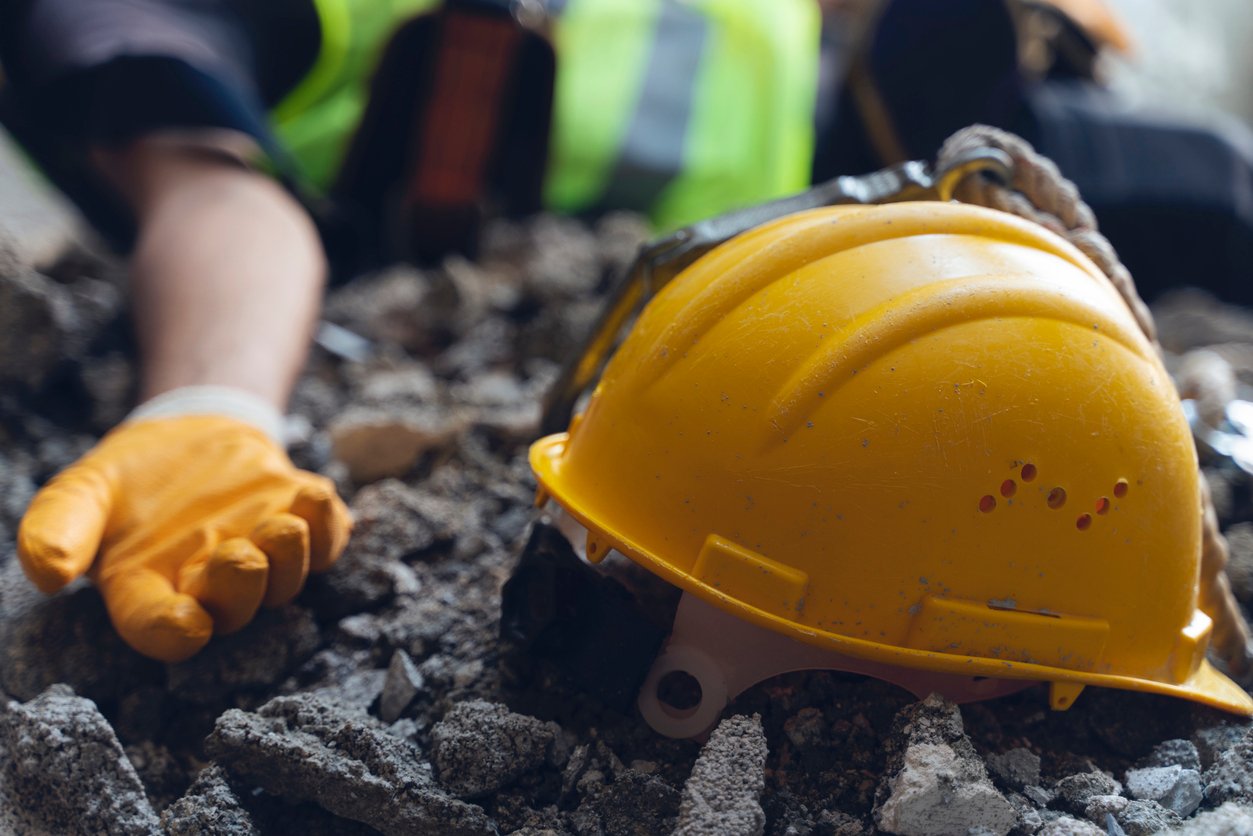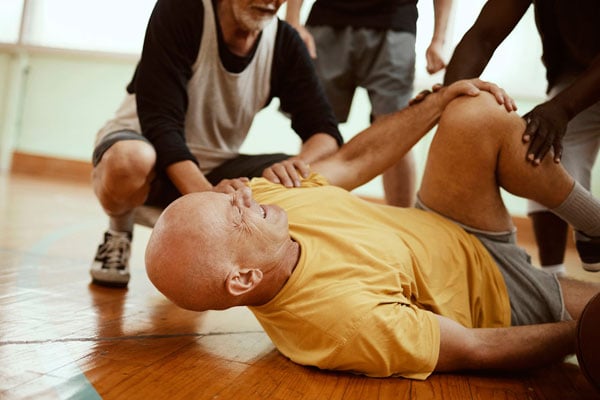Prime
Here are simple tips to prevent falls

Sometimes, you may have to do a safety evaluation and remove any hazards that could lead to falls.
What you need to know:
- Most of us are familiar with common fall causes such as slippery bathroom floors and rogue items on the floor. But many of us are oblivious to the less obvious dangers such as dim lighting and certain medications, among others. The only way to keep yourself as safe as possible is to recognise everyday risks.
On July 14, Ivana Trump, (73), the first wife of former US president Donald Trump and mother of his three oldest children died of injuries to her torso after she accidentally fell down a flight of stairs at her home. Medical reports indicated that she had died on spot.
US health officials consider falls to be the leading cause of injury-related death for people who are 65 years of age or older. About 64 out of 100,000 elderly people die as a result of accidental falls, according to the Centres for Disease Control and Prevention.
In Uganda, according to research by Dr Olive Kobusingye, at Makerere University’s faculty of medicine, falls are considered the second most common cause of severe injuries in both urban and rural settings for both children below 10 years and the elderly.
This does not only reflect high risk environments but also age-related loss of balance. The falls have their most devastating effects among the elderly, including disability and death. Falling is more than just being hurt; it is a signal that you are losing the skills needed to maintain mobility. The falls threaten the safety of the seniors as well as their safety and independence. They also generate enormous economic and personal costs, especially those that come with treating the injuries.
Causes
The commonest places where these accidental falls happen are the kitchen, stairs and bathroom; probably because of water spills that are common in such places.
According to Dr Henry Ssekyanzi, a general practitioner at Mulago National Referral Hospital, accidental slips are a common occurrence no matter one’s age. Although some incidents are inevitable, there are several precautions one can follow to prevent the risk of falls.
Watch out for anything that might affect one’s balance and alertness. The elderly suffering from dementia for instance are at a high risk of falling because the brain’s processing speed is reducing.
“Chronic pain can be distracting and change how one walks as well as affect their balance. When we are young and energetic, the brain has the ability to maintain balance and quickly correct any imbalance, but as we age, this brain’s response slows down,” Dr Ssekyanzi says.
Most elderly people develop numbness in the feet, which increases the risk of falls since the legs are entirely responsible for mobility.
With age, the causes of falling can be due to impaired vision, hearing and balance since aging can cause our senses to erode. Being unable to see and hear well affects our sense of balance and can cause falls. Cataracts, age related macular degeneration and other vision issues can also affect our sight.
“Vision is one of our senses and tells our brain when the body is in space. Hearing also contributes to this since the ‘hearing nerve’ not only helps us to hear but is also a balancing nerve. Once it ceases to function, then we are prone to falls,” Dr Ssekyanzi adds.
It is also important to rule out alcohol abuse among the elderly as another reason for falls. Also, mental health as well as physical fitness can contribute to their stability.
Vitamins
According to Dr Moses Kakyama, an orthopedic surgeon at Comprehensive Rehabilitation Services in Uganda (CoRSU), with age, vitamin D and calcium minerals start to leech out of your bones, leaving them brittle, fragile, and easily breakable, a condition known as osteoporosis.
Women older than 50 are especially at risk for osteoporosis because during menopause they lose estrogen, which helps to keep bones strong.
Individuals with osteoporosis have a higher risk of falls, due to muscle weakness, hunchback of the spine and decreased posture control. Low bone density due to osteoporosis is a main reason that falls easily result in fractures.
“We are all susceptible to thinning and weakening of bone tissue as we age so all elderly people carry the risk of osteoporosis. However, being a woman past menopause puts the risk even higher since at this time, one’s oestrogen levels reduce and the amount of new bones her body is able to replace also reduces,” says Dr Kakyama.
He also remarks that there are some deformities such as hammertoes that affect the elderly and consequently, impact their ability to walk properly.
What to do
Accidental falls, no matter one’s age, can cause life-threatening injuries that can be expensive to treat and sometimes, fatal. Falls can also cause damage to the back and spinal cord, concussions and other head injuries, severe cuts and bruises, broken hips and other bone fractures.
According to the National Council On Aging, “Falls, with or without injury, also carry a heavy quality of life impact. A growing number of older adults fear falling and, as a result, limit their activities and social engagements. This can result in further physical decline, social isolation, depression and feelings of helplessness.”
Walking aids
Patients who have fallen before dread walking and to increase their safety, he recommends walking aids. They may include a four-pronged cane or a walker with a seat or a clutch, depending on the patient’s ability to grip.
Dr Kakyama says: “Walking aids are helpful, but if used incorrectly, they can actually increase one’s risk of falling. There has to be an assessment on whether the patient needs it and training on how to use it. ”
Lifestyle adjustments
Exercise is an important part in giving your body stability. It strengthens the abdomen, back and hip girdle. There are a bunch of exercises your instructor can recommend depending on your age. This would be helpful in maintaining your stability.
“Be less sedentary and more active, engage in physical therapy, including balance training and try some activities such as yoga that helps to improve balance, ‘’ says Dr Ssekyanzi.
Correct sight
If you do not see properly, you are prone to falling. Therefore, if you have a sight problem, always ensure that you see an ophthalmologist and rule out any eye problem that could be affecting your sight. Also, remember that wearing reading glasses when walking increases your risk of falling because they increase depth perception.
Essentially, vitamin D and Calcium always play a big part in the strengthening of bones that in turn reduce the risk of accidental falls. This is the reason people are advised to get sunlight exposure for at least 30 minutes every day to enable the body to manufacture the D vitamin. Eating foods that are rich in calcium such as milk, silver fish also helps in bone strengthening.
‘‘In the event that the person is not able to absorb these nutrients quickly, such a person will need supplements of calcium and vitamin D. This helps treat mild cases of osteoporosis,’’ Dr Kakyama advises.
Caution
Sometimes, you may have to do a safety evaluation and remove any hazards that could be causing the falls such as poor lighting, throw rugs, and slippery floors. For example, one can have handholds in the shower and by the toilet.
It is important that you keep stairs and steps well-lit and free of objects, provide sturdy handrails, be very careful when going up or down stairs when wearing high heels, house slippers, long dresses or robes.
While in the bathroom, be cautious about the wet, slippery surfaces and keep rubber-backed rugs on the floor; when hanging wet clothes, be sure they drip into the tub or shower and not onto the floor where they could create puddles.




